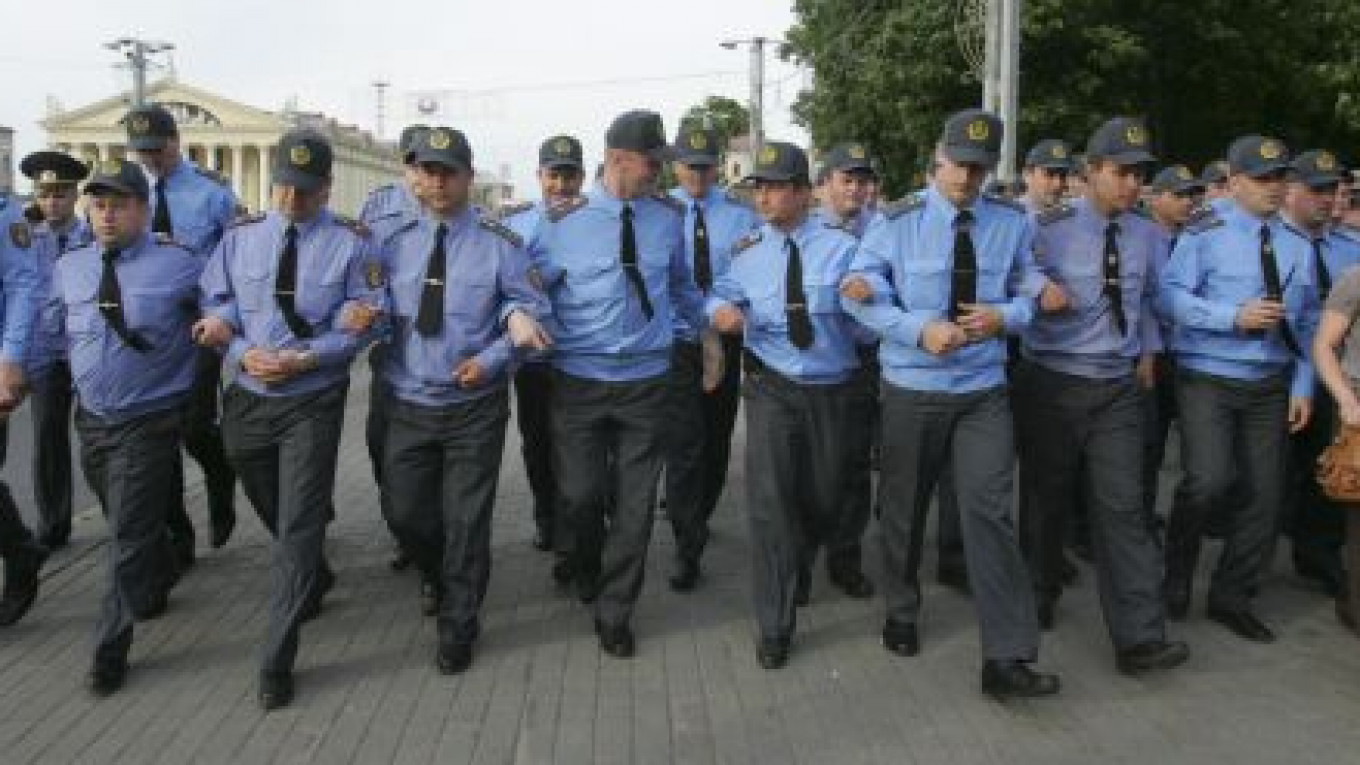MINSK — Up to 1,000 people turned out in the Belarussian capital, Minsk, on Wednesday in a rare protest against economic hardship.
Police sealed off Minsk's Oktyabrskaya Square close to President Alexander Lukashenko's main administration building, but several hundred people amassed in a largely silent protest in nearby streets all the same.
The protesters — replying to a protest call sharply critical of Lukashenko that was carried on social networking sites — carried no slogans, and they were largely silent apart from some rhythmic clapping of hands.
Police made no move to intervene against the protesters.
Motorists last week rallied in the center of Minsk in protest against a sharp rise in the price of gasoline.
And on the weekend scores of people rallied on the border with Poland, before being dispersed by police. They were protesting against restrictions on the quantity of gasoline and other goods they could take out.
Belarus' central bank said Thursday that it will raise its benchmark refinancing rate to 18 percent from 16 percent from June 22. Tightening monetary policy was one of the steps agreed upon by Belarus and Russia this month when a Russian-led regional fund set up a $3 billion three-year lending program. However, just days before the deal was agreed upon, Belarussian President Alexander Lukashenko lashed out at Russian media, saying they were stirring panic about Belarus and threatened to evict them.
On Thursday, Russian Finance Minister Alexei Kudrin warned Minsk that this attitude could prompt Moscow to review its financial commitments.
"We see curbs on media freedom, … unfriendly moves toward Russian media," Kudrin said, Interfax reported.
A Message from The Moscow Times:
Dear readers,
We are facing unprecedented challenges. Russia's Prosecutor General's Office has designated The Moscow Times as an "undesirable" organization, criminalizing our work and putting our staff at risk of prosecution. This follows our earlier unjust labeling as a "foreign agent."
These actions are direct attempts to silence independent journalism in Russia. The authorities claim our work "discredits the decisions of the Russian leadership." We see things differently: we strive to provide accurate, unbiased reporting on Russia.
We, the journalists of The Moscow Times, refuse to be silenced. But to continue our work, we need your help.
Your support, no matter how small, makes a world of difference. If you can, please support us monthly starting from just $2. It's quick to set up, and every contribution makes a significant impact.
By supporting The Moscow Times, you're defending open, independent journalism in the face of repression. Thank you for standing with us.
Remind me later.






